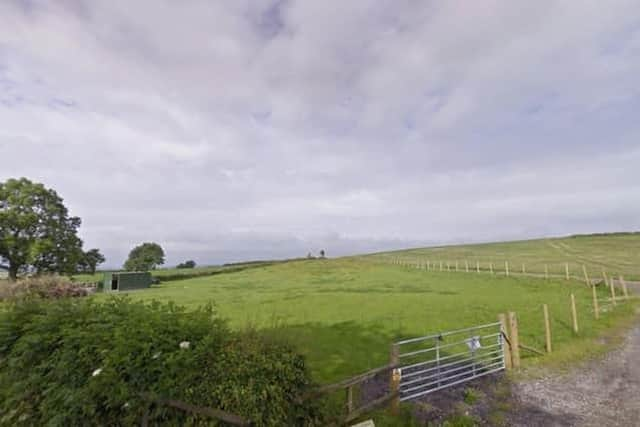Derbyshire council's 'significant error of judgement' over secretive handling of potential Traveller site - including knowingly working with drug dealer
and live on Freeview channel 276
An external report, carried out by the East Midlands Council on behalf of Derbyshire Dales District Council, investigated the events surrounding the authority’s assessment of a potential Traveller site at Hasker Farm, near Carsington Water, from May 2022 and February 2023.
The Hasker Farm “scandal” saw council officers work on a potential deal over the proposed site for eight months through extensive private meetings, which involved working with a convicted drug dealer who had been acting on behalf of the land owner.
Advertisement
Hide AdAdvertisement
Hide AdThis situation only came to light due to work from campaigners and the Local Democracy Reporting Service (LDRS), with the issue never discussed in public meetings organised by the authority – until the LDRS’s reporting.


A statement issued by the council, signed by all of the then political group leaders, had claimed the site was dropped due to financial viability issues.
However, an FOI filed by the LDRS proved the real reason, detailed by chief executive Paul Wilson, was the risk of reputational damage of working with a convicted drug dealer.
The East Midlands Council report follows a significant complaint made to the council – implicating all councillors – with 10 allegations around poor governance, transparency, prior knowledge of criminal convictions, due diligence, lying, gross professional negligence and conflicts of interest.
Advertisement
Hide AdAdvertisement
Hide AdOf the 10 allegations, East Midlands Council partially upheld four and dismissed the remaining six.
It partially upheld allegations of:
- Lack of transparency and good governance
- Prior knowledge of convictions and of involvement in organised crime
- Lack of enforcement of planning permission breaches
- Missing paperwork and lack of transparency
In response, Derbyshire Dales MP Sarah Dines has called on Mr Wilson, and other senior officials, to resign from the council over the situation, highlighting “gross professional shortcomings, blanket denials, half-truths and ineptitude”.
The council’s governance committee is to discuss the investigation at a meeting on Thursday, February 16.
A report for that meeting, discussing the investigation, details: “The investigators were clear that there are several areas where the council’s conduct fell short of what the public should expect of their local authority across areas of governance, conduct of officers and record keeping.
Advertisement
Hide AdAdvertisement
Hide Ad“It is incumbent on the district council to learn, and to learn publicly, to ensure as far as is reasonable, that it is set on improving itself following this complaint.”
The investigation found evidence of pressure placed on the organisation’s officers (who are non-political) by the authority’s then leadership – former councillor Garry Purdy and Cllr Sue Hobson (now leader of the Conservative opposition group).
It also details the need for the council to make decisions in public meetings, not in briefing sessions.
Investigators found that executive officials Tim Braund and Rob Cogings “had some prior knowledge” of the “criminal past” of the person they were communicating with and meeting with over the potential Traveller site.
Advertisement
Hide AdAdvertisement
Hide AdThey found “this was probably shared more widely among senior officers, but that they chose not to investigate further and instead trusted their own assessment that (the land owner’s representative) was genuine in his desire to help the Traveller families.
“As events transpired, this was a significant error of judgement.
“Officers were essentially naïve in their dealings with (the land owner’s agent). They chose to believe their own optimistic assessment of him rather than looking too deeply into his suspicious past and were left exposed when the full details of his criminal history became known.”
Investigators assessed it was “not remotely credible” to conclude that all involved officials knew of the land owner’s agent’s criminal history and proceeded anyway in the belief that no one would notice.
Advertisement
Hide AdAdvertisement
Hide AdThe investigation found the land owner’s agent was subject to a proceeds of crime confiscation order and that officers were aware of this, although Mr Wilson was “non-committal”.
A Google search is all that is required to find that information, which was emailed to the council by a former councillor.
However, investigators assessed that the council had not entered into a formal “business relationship” with the agent, despite eight months of talks including preliminary assessments of the potential site – paid for with more than £4,000 in taxpayers’ money.
The investigators found that no notes were taken at a private meeting held between councillors and officers to discuss the site, where it was said councillors approved a move to drop further work on the grounds of financial viability – since proved false.